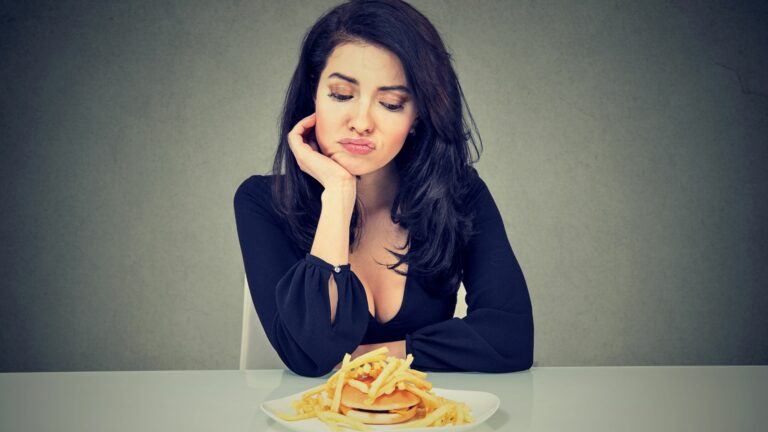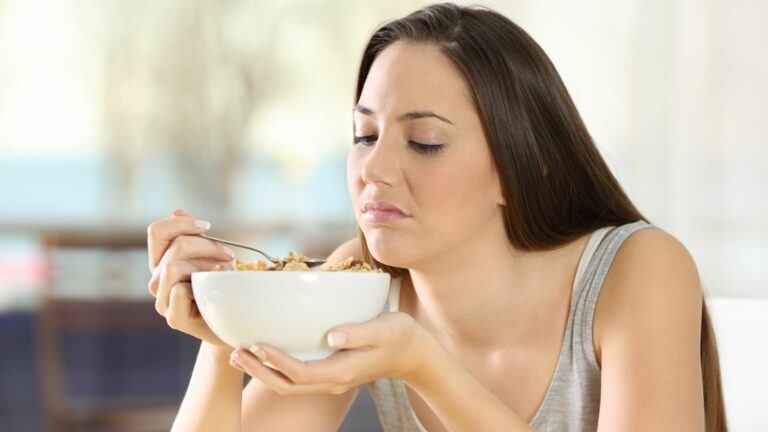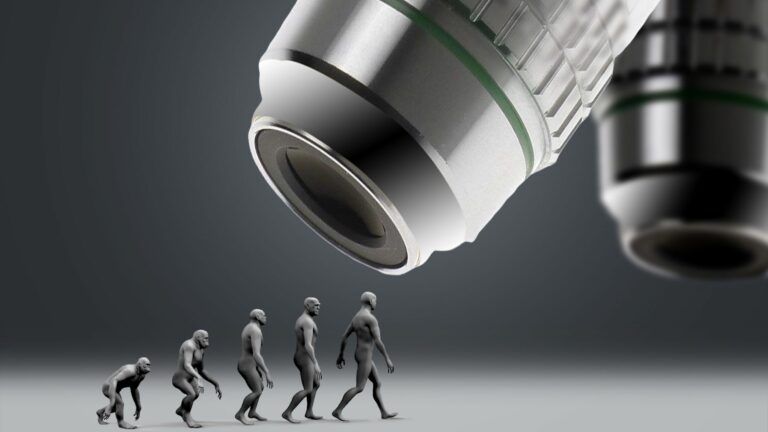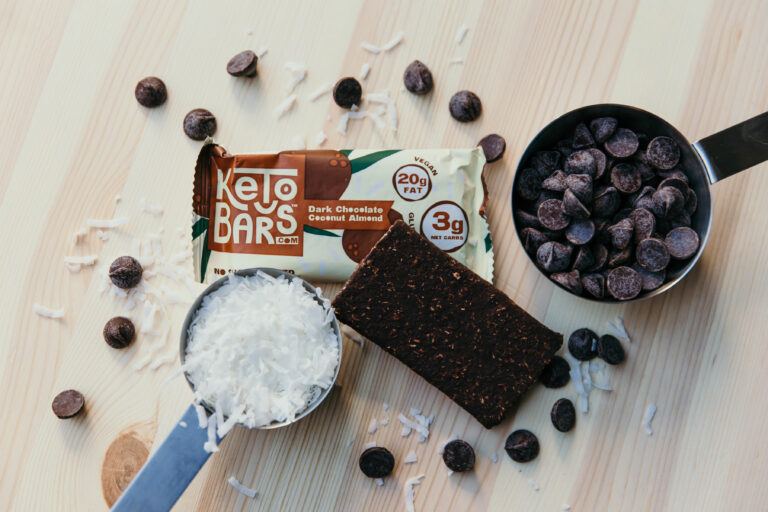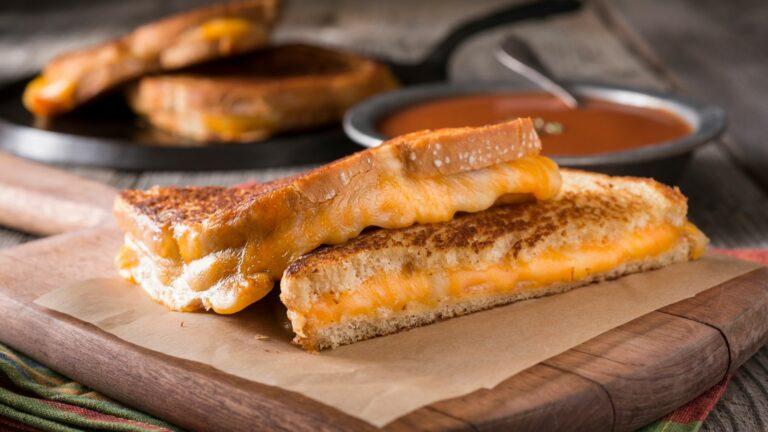What Can You Drink While Fasting? Let’s Ask Dr. Jason Fung
When it comes to fasting, one of the most frequently asked questions is – what can I drink during a fast? While it may seem a little counterintuitive to inquire about what you can consume during a period in which you are abstaining from eating, there are some things that you can drink that may enhance the benefits of your fast and make it easier to maintain your fast.
Dr. Jason Fung has authored several best-selling books, including The Obesity Code and the Complete Guide to Fasting, and is one of the world’s most recognized experts on weight loss and fasting for improved health.
This article will summarize Dr. Fung’s recommendations regarding what you can drink during a fast and ways to make fasting easier.
Types of Fasts
Fasts are generally defined by what is allowed on the fast and the length or frequency of the fast. The water-only fast is the most traditional type of fast. However, most definitions of fasting allow for other noncaloric drinks such as black coffee and tea.
There are differing opinions about calorie-free sweeteners such as stevia, aspartame, and sucralose while fasting. However, Dr. Fung suggests that they be avoided along with all types of artificial flavors.
Juice fasts allow for the consumption of juice and water, but due to the amount of sugar and calories in juice, they do not offer the same benefits as strict no-calorie fasts. While juice made exclusively from green leafy vegetables contains far fewer calories than fruit-based juice, it is still not recommended by Dr. Fung.
Since fat has minimal effects on insulin, consuming relatively pure fats such as coconut oil, cream, and butter during the fasting period has become very popular. While Dr. Fung does not consider a fat fast a “true fast,” he suggests that fats can be added to coffee or tea to make fasting a little easier.
Like those done by Muslims during Ramadan, dry fasts do not allow fluids of any kind to be consumed. The mild dehydration that accompanies this type of fasting can increase the risk of complications, and therefore Dr. Fung does not recommend it.
Fasting Fluids
In his book The Complete Guide to Fasting, Dr. Fung details what fluids can be consumed during a fast and the potential benefits of each.
Dr. Fung recommends only water, coffee, tea, and homemade bone broth for optimal benefits. However, he does outline some things that can be added to these fluids to help make fasting a little more enjoyable.
He notes that many of these added items contain calories and will ultimately break your fast, but only slightly, allowing you to return to a fasted state much faster than if you had consumed a complete meal.
While fasting does get easier the more you do it, it can be uncomfortable at first, and by offering these options, his patients can be more consistent and successful with their fasting efforts.
Water

Under Dr. Fung’s guidelines, you should drink water first thing in the morning and frequently throughout the day, and you can enjoy flat, mineral, or carbonated water.
For pure water at home Nora Gedgaudas, author of Primal Body, Primal Mind, recommends the Berkey countertop gravity water filtration system, and Dr. Berry uses this reverse osmosis system.
What you can add to your water
Limes, lemons, slices of other fruits for natural flavoring (do not eat the fruit itself), apple cider vinegar, and Himalayan salt. Surprisingly, Dr. Fung also suggests that to help with hunger, a tablespoon of ground chia or flaxseed can be added to a cup of water.
What you can’t add to your water
Sweetened powders or drops, even if they are sugar-free and have zero calories.
Coffee & Tea
Coffee can be caffeinated or decaffeinated, and Dr. Fung suggests that you can drink up to six cups of coffee on a fasting day. Coffee contains many antioxidants, caffeine has been shown to boost performance and focus, and both caffeinated and decaffeinated forms help suppress appetite.
Dr. Fung specifically recommends green tea, cinnamon chai tea, peppermint tea, bitter melon tea, black tea, and oolong tea for their appetite suppressing and blood sugar lowering qualities.
What you can add to your coffee or tea
Dr. Fung suggests that one tablespoon of certain fats, including coconut oil, MCT oil, butter, ghee, heavy whipping cream, half and half, and whole milk can be added to your coffee or tea. Ground Ceylon cinnamon or lemon can also be added for flavor.
What you can’t add to your coffee or tea
Avoid low-fat and skim milk, powdered dairy products, and natural or artificial sweeteners of any kind.
What about bulletproof coffee?
While Dr. Fung does offer recipes for both bulletproof coffee and tea in his book, he does not recommend they be consumed during your fasting period as they contain too many calories and are essentially a meal.
Homemade Broth
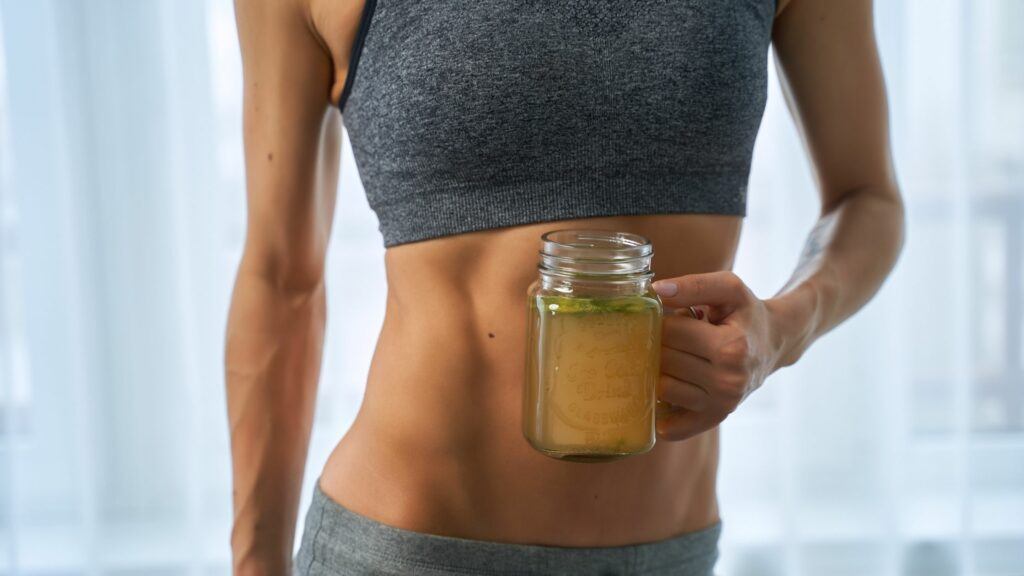
Lightheadedness associated with dehydration and decreased levels of electrolytes is common during your first few fasting periods. Dr. Fung suggests that this can be remedied by consuming a good homemade broth made from vegetables, meat, or bones (animal or fish). However, he notes that the presence of gelatin in animal and fish-based broths is particularly beneficial for those with arthritis or other joint problems.
What you can add to your broth
Note that these items are to be strained out after cooking.
Any vegetable that grows above the ground, leafy greens, carrots, onions and shallots, bitter melon, animal meat, animal bones, fish meat, fish bones, Himalayan salt, herbs, and spices. Dr. Fung also permits one tablespoon of ground flaxseed can be added to each cup of bone broth.
What you can’t add to your broth
Vegetable puree of any kind, potatoes, yams, beets, or turnips. Dr. Fung also suggests that you avoid store-bought broths, even organic.
Three of our top 4 meat delivery services, including US Wellness Meats, Grass Roots Farmers’ Cooperative, and Farm Foods Market, offer grass-fed pasture-raised meats, bones and other animal parts to make broth. US Wellness also offers their homemade bone broths, but they currently seem to be out of stock.
For convenience, I personally enjoy the premade grass-fed bone broths from Brodo and Kettle & Fire (also available on Amazon).
Check out Dr. Fung’s books and YouTube Channel for more great advice on fasting and healthy weight loss.
Do you incorporate fasting into your routine? What do you consume during your fast? Please consider sharing your experience by commenting below to help others live a fit keto lifestyle.
Thank you for visiting LiveFitKeto.com. Check back often for new content or subscribe to our newsletter to receive updates on new articles, and if you have found this information helpful, please don’t hesitate to share.


